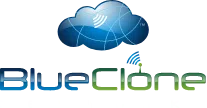Remote IT support NJ has become a cornerstone for small and mid-sized businesses (SMBs) seeking dependable, cost-effective technology management across the Garden State. For SMBs in healthcare, finance, legal, pharmaceutical, and various professional sectors, maintaining seamless operations and compliance is critical. Yet, the overhead of traditional IT staffing or break/fix models can limit both growth and resilience. Remote IT support models, tailored by experienced providers in New Jersey, empower organizations to gain rapid, expert assistance from anywhere – at a fraction of historical costs – while improving uptime and organizational flexibility. This article explores how remote IT support transforms SMB operations, what services are available, how security and compliance are managed, and actionable steps for NJ-based businesses to modernize their IT while safeguarding the bottom line.
The Value Proposition of Remote IT Support NJ for Modern SMBs
When technology fails, workflow interruptions cost time and erode stakeholder confidence. In highly regulated industries such as healthcare and finance, even minor technical issues can lead to audit challenges, data breaches, or missed service opportunities. This is where remote IT support NJ delivers immediate, practical benefits. Unlike traditional models requiring on-site visits, remote IT support leverages secure remote-access software and robust communications to diagnose, resolve, and monitor issues with minimal disruption.
Remote IT support isn’t just about repair; it’s a proactive system for uptime. Technicians continually monitor your network health, often detecting and addressing issues before they materialize as business disruptions. For SMBs with distributed teams or hybrid work environments, remote access means assistance is available wherever your people are – office, home, or on the road.
Three initial, fundamental advantages stand out:
- Speed of Response: With remote IT support NJ, help is just a call or chat away. There’s no waiting for a technician to drive across town. Whether it’s a malfunctioning printer, a problematic software update, or strange network behavior, remote support teams can quickly connect and resolve the situation. This is particularly valuable for law firms in Trenton, medical practices in central New Jersey, or financial offices that can’t afford downtime.
- Cost Containment: Employing or contracting on-site IT support can inflate the operating budget, especially for businesses with fluctuating needs. Remote IT models allow SMBs to control costs with predictable monthly rates or pay-as-you-go plans. There’s reduced travel expense, minimized downtime, and less need for large in-house teams. This predictability enables organizations to allocate resources strategically rather than reactively.
- Proactive Monitoring and Maintenance: Providers offering IT support services NJ deliver proactive health checks, patch management, and cyber monitoring remotely. This foresight dramatically reduces incidents of surprise outages or data loss. For executive teams, the ability to measure and track technology ROI is significantly enhanced by these transparent, reportable metrics.
In summary, remote IT support NJ emphasizes availability, speed, and cost efficiency – qualities SMBs need to stay competitive, secure, and compliant. Often, the right provider can help scale operations or weather increased regulatory scrutiny without exceeding budgetary limits.
Core Services Delivered by Remote IT Teams: More Than Just Troubleshooting
Many decision-makers mistakenly believe remote IT support is limited to “fixing things when they break.” However, today’s managed IT support Trenton NJ and throughout the state has evolved into an extensive suite of services designed for long-term operational health, business continuity, and compliance. By understanding exactly what’s on offer, business leaders can extract greater value from their IT investments and position their organizations for both growth and resilience.
1. Helpdesk and End-User Support
The most visible layer of remote IT support is the IT helpdesk services. End-users experiencing technical difficulties – ranging from software errors, email issues, password resets, or problems accessing cloud resources – receive expert assistance in real time. Modern helpdesks operate 24/7, crucial for practices serving clients beyond the traditional 9-to-5 window or organizations with shift-based clinical staff.
Remote troubleshooting uses secure connections to diagnose and address issues directly on the user’s machine or device. This dramatically reduces wait times and virtually eliminates the need for on-site intervention except for hardware failures.
2. Network and Security Monitoring
Continuous, automated scanning for network anomalies, unauthorized access attempts, or early signs of hardware failure protects business assets behind the scenes. If suspicious activity or vulnerabilities are detected, remote IT support teams respond with investigation and mitigation – sometimes before the business even notices a potential threat.
For regulated industries, this monitoring isn’t just a technical plus; it’s a compliance necessity. Healthcare and law offices, for instance, are required to maintain specific network protections, monitor electronic health records (EHR), and uphold stringent data access controls. Integration of cybersecurity compliance services NJ into remote IT programs brings peace of mind to busy executives.
3. Patch Management and Maintenance
Secure, up-to-date software is the first line of defense against cyberattacks. Remote IT teams handle regular patching for operating systems, line-of-business applications, and network firmware. Automated processes ensure consistency and compliance with organizational policies, eliminating the “patchwork” vulnerabilities that afflict so many SMB networks.
4. Cloud Resource Management
Whether managing Microsoft 365 deployments, Google Workspace, or specialty SaaS integrations, remote IT support NJ covers cloud licensing, security, and migration tasks. Assistance with cloud file access, permissions, and backup protocols ensures teams can collaborate and retrieve data – no matter where they’re located.
5. Remote Backup and Disaster Recovery Preparedness
Remote IT support doesn’t stop with day-to-day operations. Teams also establish, verify, and test backup and disaster recovery strategies. Should ransomware or server failure occur, business operations can resume quickly from secure, remote backups.
6. Compliance and Advisory Services
Compliance is not a one-time checkbox – especially under HIPAA, PCI-DSS, or FINRA regulations. Remote IT experts provide ongoing consultation, audit readiness, and required documentation. They assist in the development and updating of IT policies and support organizations through external audits or legal inquiries, making cybersecurity compliance services NJ a continuous, value-added feature.
These service layers, working in concert, transform IT from a potential liability to a true SMB asset. Expert remote support enables small organizations to harness enterprise-grade tools and confidence – without the overhead and complexity of doing it all in-house.
Contact us to learn how customizable, proactive support can fit your organizational needs and compliance requirements.
Proactive Security and Regulatory Compliance with Remote IT Support
For SMBs in New Jersey, security isn’t just about preventing the next malware headline – it’s about daily vigilance, compliance, and reputation management. The consequences of a data breach or mishandled client record range from regulatory penalties to irreparable client trust loss. Remote IT support NJ places a premium on preemptive defense mechanisms; providers in this area are deeply familiar with the compliance landscape and craft tailored controls accordingly.
Security Monitoring and Endpoint Management
A distinguishing feature of high-quality remote IT support is continuous endpoint and network monitoring. Every server, laptop, workstation, and mobile device serves as a possible gateway for threats – especially as remote/hybrid work grows. Providers proactively deploy and update antivirus, EDR (endpoint detection and response), and vulnerability scanning tools across the ecosystem. If an anomaly is detected, IT professionals analyze logs and take decisive action before data loss can occur.
In addition, advanced threat detection platforms allow remote techs to spot malicious activity patterns, block bad actors, and immediately remediate risks. With cyber threats evolving rapidly, these solutions are indispensable for businesses aiming to protect sensitive legal files, financial records, or personal healthcare data.
Compliance-Driven Processes: HIPAA, PCI-DSS, and Beyond
New Jersey’s SMBs, especially those in healthcare, legal, and finance, face rigorous data privacy laws. Remote IT support teams build compliance into the DNA of their solutions. Examples of compliance support features include:
- Secure, encrypted remote access tools
- Automated audit trail creation for all system changes
- Role-based access controls and user authentication measures
- Scheduled compliance risk assessments and training
Partnership with providers well-versed in regulatory frameworks means audit preparation and documentation are handled smoothly. If an issue emerges, experienced IT teams guide SMBs through corrective actions with established, regulator-approved processes.
“Cybersecurity compliance services NJ” often encompasses everything from risk assessments for healthcare clinics to PCI-DSS guidance for payment processing firms and FINRA policies for financial advisors. Credible IT support partners keep teams aligned with legal mandates – minimizing business interruption and fines, and building trust with clients and patients.
Proactive Patching and Updates
Automated patching, delivered remotely, is essential for compliance. Outdated systems and applications are a favorite entry point for attackers and auditors alike. Remote IT support Trenton NJ specialists use scheduling tools and thorough patch vetting to keep all devices protected – while minimizing user disruption.
Responsiveness to Security Incidents
Fast remote triage and containment of threats can be the difference between a minor hiccup and a regulatory investigation. Teams that specialize in remote IT support NJ establish clear escalation paths, so the right experts are notified instantly. Detailed post-incident documentation readies businesses for insurance claims or regulatory reviews.
Recent studies underscore the value of these approaches. For instance, the U.S. Small Business Administration identified cyber preparedness – much of which is delivered through remote support – as the single most effective shield for SMBs against financial losses from ransomware and data theft.
Remote IT support in New Jersey delivers not only technical fixes but a holistic security and compliance architecture, tailored for today’s risk and regulatory landscape.
Cost-Saving Strategies: How Remote IT Support Slashes SMB IT Expenses
Calculating the real cost of IT issues goes beyond the hourly rate for support. For SMBs, an interrupted day can mean lost client appointments, billing delays, or unbillable overtime. Remote IT support NJ has proven to be a direct route to cost control – providing expert resources on-demand, erasing unnecessary downtime, and letting businesses predict and allocate budgets confidently.
Reduction in Direct Labor and Overhead
Managed IT support Trenton NJ providers can serve as a full outsourced IT department or bolster in-house teams through co-managed models. This hybrid approach slashes the need for full-time salaries, benefits, training, and hardware for IT staff – replacing them with a single monthly fee that covers broad expertise, 24/7 availability, and specialist escalation. SMBs avoid the “hidden” costs of recruiting, certifying, and retaining IT talent.
Minimizing Onsite Visits and Associated Expenses
Onsite technical visits require travel, scheduling, and often result in billing for mere diagnostics – time not spent actually fixing issues. Remote IT support eliminates the truck roll: technicians connect securely through remote desktop solutions, fix most issues within minutes, and only dispatch on-site help when absolutely necessary. This lean model passes savings directly to the client.
For companies with multiple offices or remote staff across New Jersey, the savings multiply: there’s no need to fly or ferry IT staff between locations, and distributed teams receive the same level of service no matter where they are.
Predictable, All-Inclusive Support Packages
Many remote IT support NJ providers offer all-inclusive support agreements: bundled monthly fees covering everything from helpdesk to compliance consulting and security monitoring. This leveling of support expenses means CFOs and operation managers can forecast and allocate budgets effectively, rather than scrambling to find funds for unplanned site visits or urgent repairs.
Reduced Downtime and Productivity Loss
For regulated industries, downtime is more than lost revenue – it can trigger compliance fines or liability claims if client data is compromised. By proactively monitoring and maintaining systems, remote IT providers resolve budding issues before staff even notices. The business operates smoothly, billing and casework continue uninterrupted, and customer experience remains positive.
Recent analysis by CompTIA underscored the 2024 trend: SMBs shifting to managed remote IT models reduced annual IT-related downtime by 30–50%, protecting not only budgets but brand value.
Scale as You Grow, Without New Hiring
As SMBs add new staff, open new locations, or adopt new technology, their remote IT support provider scales seamlessly alongside – provisioning licenses, onboarding new users, and extending security practices organization-wide. This flexible growth model means expenses only rise with true business expansion, not with every IT event.
For SMB leaders, these cost-winning characteristics make remote IT support an obvious choice: more resources, less waste, and a streamlined path to both operational health and compliance.
Choosing the Right NJ Remote IT Partner: What to Evaluate
The remote IT marketplace in New Jersey is robust, but not all providers are created equal – especially for healthcare, legal, financial, and pharmaceutical SMBs with heightened compliance expectations. Selecting the right partner requires a clear-eyed evaluation across several criteria to ensure alignment with organizational goals, risk tolerance, and sector mandates.
Regulatory and Security Expertise
No question is more critical for highly regulated organizations: Does the provider offer proven, referenceable expertise in “cybersecurity compliance services NJ” as well as sector-specific mandates like HIPAA, FINRA, or PCI-DSS? Qualified providers document their compliance processes, provide ongoing regulatory updates, and facilitate risk assessments as part of their core offering.
Look for:
- Formal compliance certifications and real-world regulatory audit experience
- Service-level agreements (SLAs) with clear response and escalation timelines
- Transparent processes for handling sensitive data, remote access, and audit trails
Service Scope and Helpdesk Availability
Providers should deliver more than basic IT helpdesk services. Evaluate the breadth of their remote capabilities: do they cover network engineering, cloud management, endpoint security, disaster recovery planning, and co-managed IT models?
Availability is also critical – 24/7 support ensures issues are resolved quickly, whenever they arise. Check for client testimonials attesting to rapid resolution times and effective communication.
Technology Toolset and Automation
Best-in-class remote IT support NJ leverages automation for patch management, monitoring, and device provisioning, reducing manual errors and accelerating time to resolution. Inquire about their technology stack, integration with business applications, and security updates schedule.
Local Knowledge and Onsite Support Flexibility
Even with robust remote capabilities, a New Jersey provider with local roots can deliver on-the-ground service if urgent hardware or infrastructure issues demand presence. Those that know the local business ecosystem, legal climate, and regulatory bodies add value during audits or crisis events.
References, Experience, and Transparent Pricing
Seek out providers with a documented track record in serving NJ’s regulated SMBs. Request references from peers or regional partners, review case studies, and confirm that pricing models fit your business size and projected needs without excessive upsell.
Recently, the NJ Tech Council highlighted the growing customer demand for managed IT support Trenton NJ providers grounded in regional expertise, citing their higher satisfaction scores among SMBs compared to national, remote-only vendors.
Taking the time to vet remote IT partners pays long-term dividends in minimized risk, improved staff satisfaction, and predictable IT results.
Frequently Asked Questions: Remote IT Support NJ
Remote IT support teams can handle a wide array of problems without needing to dispatch a technician. Common examples include troubleshooting software errors, malware removal, printer and peripheral setup, email access or configuration fixes, password resets, cloud data retrieval, patch installation, and network connectivity issues. With advanced remote management tools, nearly all user and network problems – except direct hardware replacements – are handled quickly and efficiently.
Providers specializing in cybersecurity compliance services NJ embed requirements for these frameworks directly into their service delivery. This includes maintaining audit-ready records, enforcing access controls, conducting ongoing vulnerability assessments, and keeping systems patched and up to date. They support formal risk assessments, annual audits, and policy creation so your business remains consistently compliant and avoids fines or penalties.
Absolutely. One of the prime advantages of remote IT support is its ability to serve organizations with distributed teams – whether across several branch offices, remote employees working from home, or hybrid workplace arrangements. The same helpdesk services, monitoring, and cloud management capabilities are available everywhere your staff has internet access, ensuring uniform service regardless of physical location.
Managed IT support means your business contracts for ongoing, proactive monitoring, regular maintenance, cybersecurity, and helpdesk services for a predetermined monthly fee. This contrasts with on-demand (“break/fix”) models where you only call for help when there’s an issue. Managed services deliver greater uptime, predictable costs, and a shift from reactive to preventive support – especially important for SMBs seeking growth and security.
Start by analyzing your current IT pain points and compliance requirements. Reach out to a reputable local provider with expertise in your industry and documented experience in remote support for regulated businesses. Ask about customizable support plans, technology stack, SLAs, and client references. For organizations in NJ, working with a partner familiar with state laws and business culture yields stronger results.





